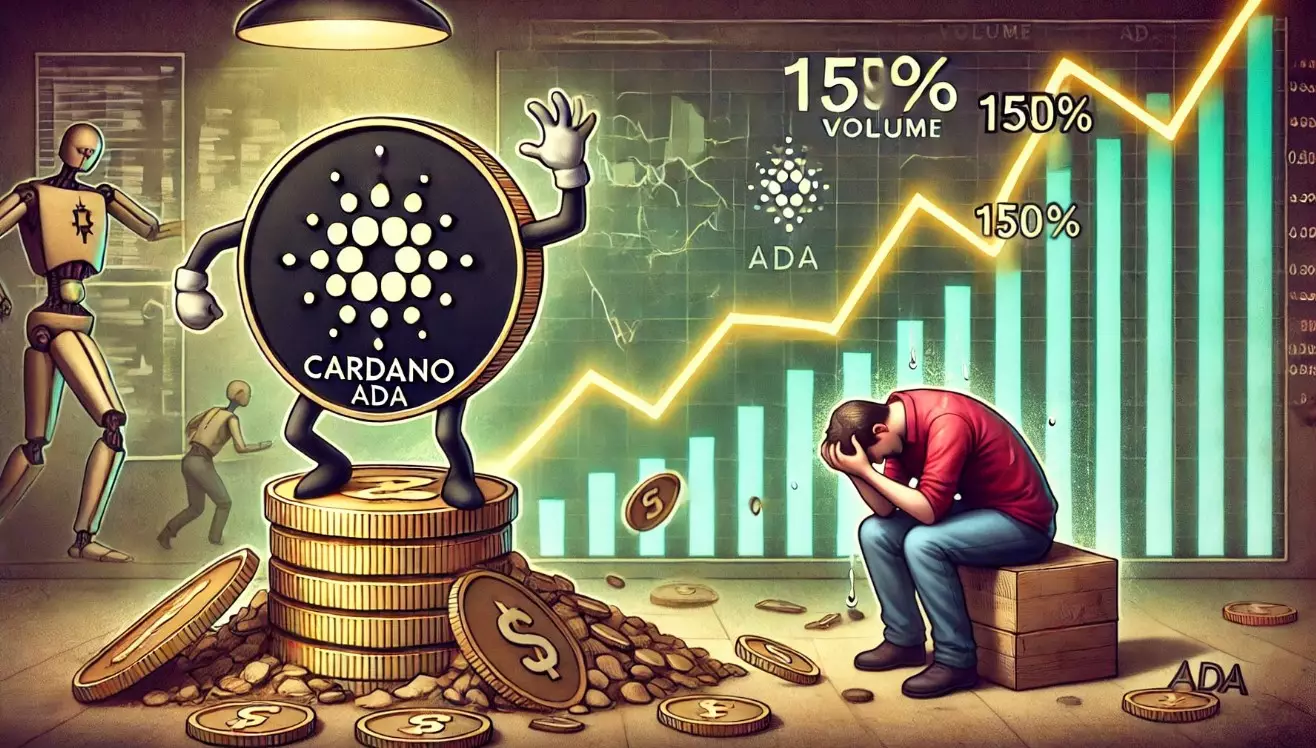In the competitive realm of cryptocurrency, the Cardano (ADA) blockchain has positioned itself as a frontrunner following its recent Chang hard fork upgrade in September. This strategic upgrade has not only fortified its infrastructure but has also sparked discussions regarding its standing among other cryptocurrencies, particularly Bitcoin (BTC) and Ethereum (ETH). Charles Hoskinson, one of the renowned founders of both Cardano and Ethereum, has been vocal about the perceived superiority of Cardano since the upgrade. His unwavering confidence in Cardano’s potential rests on its decentralized governance model, an essential tenet that he believes differentiates it from other blockchain platforms.
The essence of what makes Cardano compelling is its emphasis on decentralization. In stark contrast to Ethereum, which Hoskinson critiques for being overly reliant on its pioneer, Vitalik Buterin, Cardano aims to establish a system of governance that empowers its community. The implications of this shift are profound. By redistributing power from a select few to a broader audience within the network, Cardano sets a precedent for a more democratic blockchain framework. Hoskinson’s assertion that Cardano is “still number 1” is not merely a boast but a rallying cry for advocates of decentralization in blockchain technology.
At the recent Token2049 Conference in Singapore, Hoskinson highlighted the governance model introduced by the Chang hard fork. This framework allows for a dynamic interaction among delegated representatives (DReps) who can now collaborate, vote, and refine the network’s roadmap through a blockchain-based system. Looking at the bigger picture, this governance innovation allows for continuous development unhindered by individual constraints, thereby creating a more resilient network. Hoskinson’s assertion that “Charles, alive or dead, doesn’t matter” encapsulates the philosophy behind Cardano — a commitment to sustainable innovation that thrives on community involvement rather than individual leadership.
Moreover, the growth metrics of Cardano cannot be overlooked. The network has seen the deployment of over 74,000 Plutus scripts and the creation of 1.3 million delegated wallets over the past seven years. These figures highlight a vibrant ecosystem ripe for development. Additionally, the launch of approximately 1,373 projects indicates the platform’s growing appeal among developers and investors alike. Such growth is further accentuated by the emphasis on decentralized governance, a feature that promises to enhance user trust and participation.
As Cardano looks ahead, it seeks to evolve even further by transitioning from its original genesis keys, which have governed the blockchain since its launch. This evolution represents a significant milestone towards achieving a fully autonomous and self-sustaining blockchain ecosystem. The upcoming steps involve increased participation from stake pool operators (SPOs) and DReps and the establishment of a Constitutional Committee (CC) that will facilitate this transformation.
The vision for Cardano’s future is ambitious and rooted in enhancing the capabilities of decentralized applications (DApps). With the final transition to what is known as the Voltaire era, the network anticipates complete independence from its original governance structures. This era will enable a fully decentralized governance model where decisions are made collectively, reflecting the community’s interests and fostering innovation without bottlenecks.
While details regarding the timeline for these developments remain scarce, the excitement surrounding Cardano’s trajectory is palpable. With each upgrade and community effort, the blockchain continues to build momentum, proving that the ideals of decentralization can be realized in a scalable and sustainable manner. Given the intricate dynamics of the cryptocurrency market, Cardano’s commitment to transparency and community-driven governance sets it apart and underscores its potential as a leader in revolutionizing how blockchain networks function.
Cardano is not just another cryptocurrency; it embodies a philosophy that prioritizes decentralization and community empowerment. The Chang hard fork marks a pivotal moment in its journey, positioning it not just as a tool for financial transactions but as a burgeoning platform for a new era of blockchain innovation. As it progresses towards the future, Cardano stands as a testament to the evolving landscape of cryptocurrency, highlighting the importance of democratic governance in technology.


Leave a Reply